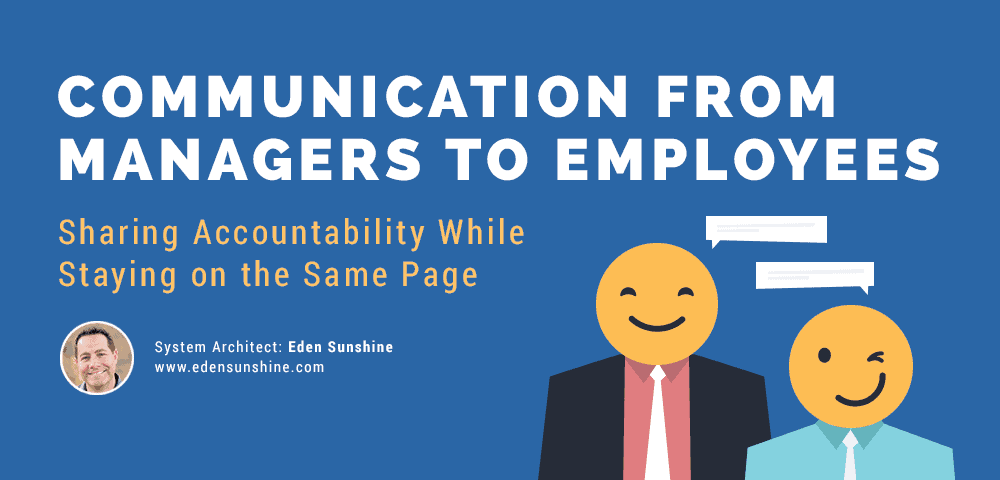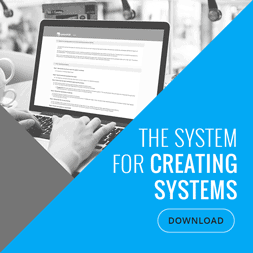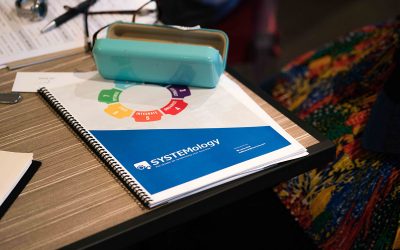System Architect | Eden Sunshine: edensunshine.com
Are you accountable for all the work you do? Can you hold your team to account – and can you expect answers from them when you need them?
We live in a working world where we are all expected to be on the same page at all times. Communication and accountability are vital! Many firms will know all too well that if communication festers, so can their projects. While we’re communicating freer than ever before, why is it that people are still failing to collaborate properly? Are systems doing enough to ensure work is not just delivered but delivered to standard?
Let’s face it – emails get ignored. So do direct messages! We all want to work for the same goal. So many projects fail due to communication and accountability breakdown, and it’s high time that stopped.
Introducing the Right Interface
In the past, managers have simply delivered work to employee in-piles. Cloud software has certainly done plenty to streamline the delivery process. But what of the quality of the work? Short of complete micro-management, how can we ever be sure that projects are going to be returned as we expect?
The right delegation interface can, therefore, allow projects to be delivered directly to architects with full accountability required. That’s from both sides. This system doesn’t just allow management to create a reminder, or add to their employees’ schedules. It requires managers to offer all the detail and support needed for the job to be done. It also requires that all parties involved to sign on and agree.
Simple system changes can make a lot of difference when it comes to streamlining these types of process. A good delegation system shouldn’t just demand results from the employee. They should require managers to provide explicit detail and the tools needed for the results they demand. But how should such an accountability system work in practice? Let’s take a more in-depth look, step-by-step.
How Managers Can Share Accountability with Their Employees
The purpose of the Accountability and Compliance Policy is to create a working environment where people take personal responsibility, accountability and consistently follow through with their agreements and commitments.
- Designated managers must utilise the Delegation System when giving assignments. The assignment is not considered delegated until an agreement has been reached. All a delegation requires time or due date to be specified along with the task. Unless already specified in writing, all delegations must be written down as they are assigned.
- The employee takes on full accountability for performing the work and achieving the results as agreed. In other words, if the employee says they are going to do it, they are expected to keep their commitment to performing the task as specified in the time frame agreed.
- The manager accepts full accountability for providing the employee with the resources and guidance needed to accomplish the task.
- All standing delegations will be found in the company systems, checklists, and company calendars. All other project or task-related delegations must be written down or recorded in the company project/task management system.
Team Leaders, Managers and fellow team members will assume that the work is performed as agreed upon unless otherwise notified. In some cases, a reporting loop may be established between a manager and team member. The purpose of the reporting loop is not for micro-management of a team member’s activity but to serve as a check-in point for additional direction and communication in a project or assignment. Reporting loops will be established at the time a project or assignment is given or written into ongoing systems and procedures.
If a team member is unable to complete a task or honour an agreement, they must notify their manager – or the person they made the commitment to – in advance. Failure to notify or gain an exception will result in a violation of standards and policies or may include additional disciplinary action up to and including termination.
Directives should only come from the team member’s primary manager or team leader unless delegation is implied through a system or procedure, or if delegation has been approved by the team member’s primary manager.
The consequences of violation of this policy where there are [enter the annual number, 4 is typical] instances per year may include additional disciplinary action up to and including termination. Managers will use the Acknowledgement and Adherence Report to monitor all employee violations of the policy. Use the attached form to indicate instances of accountability violations which should be placed in all employee files.
Accountability is applicable to systems listed on Positional Performance Agreement, applicable policies and procedures, adherence to our company core values, specific and unique work assignments, and commitments made to our clients, fellow team members and vendors etc.
In summary, this Accountability Policy is all about one very simple thing…
Keep your promises and do what you say or are responsible for doing… every time!
Delegation systems, when appropriately implemented, should always make sure everyone involved knows what’s expected of them. What’s more, they should also be expected to acknowledge this. Advising your team of tasks and deadlines is one thing – ensuring understanding and appreciation of the rules is entirely different. An accountability policy and delegation system which demands physical input at both ends should enhance your productivity no end.
We’ve all been there. From the inside or on the outside, when two or more parties just don’t communicate properly, things fall apart. Setting up a delegation system to demand accountability should feel less like a leash and more like an asset. After all, whether you’re creating the work, delivering it or actively undertaking it, we all want the same results. Don’t we?
Technology continues to change the way we communicate and stay accountable. What are your tips for keeping team members in the loop? Could a system such as this give your project line a much-needed boost? Let us know, share your stories – let’s talk collaboration. Only – without all those missed emails and ignored alerts.
System Architect – Eden Sunshine

For over 17 years, Eden has worked with business owners, leaders and their teams in a cross-section of industries. Eden says, “The way a business can really grow to its fullest potential is by shifting how people think and work in their organisations. The Level 7 System is a perfect model to help businesses make that shift and unify the approach through the entire organisation.” The average client Eden engages with realises a 200% increase in revenue and a 240% increase in profitability.
Eden developed the Level 7 System, which is a one of a kind, simple and systematic business development approach that guides businesses to become scalable, systems driven with great cultures. He also has developed other ancillary programs like the Systemize Your Business in 90 Days Program. He is in the process of publishing two books: The Book on Building Great Businesses and Woo Hoo: Successfully Transforming Your Business and Your World.













